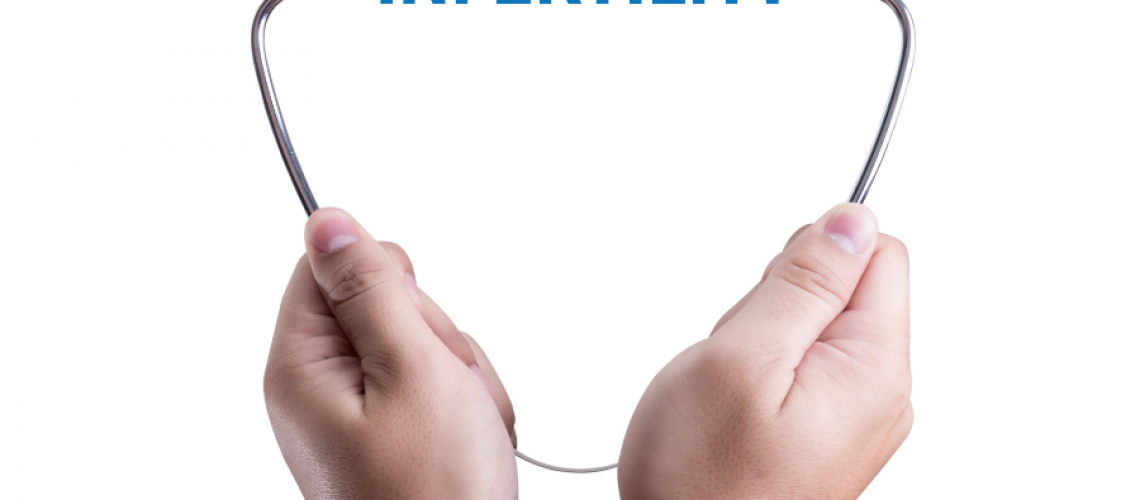Finding out you may not be able to get pregnant, or get someone else pregnant can be a bit of a shock. If you are like most people, you spent your teen years and early adulthood actively trying to prevent pregnancy and likely knew very little about infertility. After all, sex education classes aren’t exactly comprehensive. Many individuals finally get to a place where they feel ready to start a family only to find out they won’t be able to without a little help. For some, it may mean a medicated cycle to help them ovulate. For others it could mean IUI or IVF. Maybe for others, infertility means they will never be able to carry their own baby or perhaps even use their own genetic material. Many hopeful parents are left feeling overwhelmed, scared and grieving the loss of the baby making journey that suddenly got a lot more complicated. And usually a lot more expensive.Talk about a range of emotions! As a Fertility Therapist, this is usually the point when my clients reach out to me.

Written by Guest Blogger: Ariel Taylor BSW, RSW Fertility Therapist
While there is a lot to process and certainly a lot of feelings after an infertility diagnosis, there are some steps you can take right away that will help you feel more grounded, more in control and better equipped to handle the journey to parenthood.
1. Get support.
Nearly 15% of individuals will suffer from infertility yet most people I see in my private practice still feel isolated and alone and even ashamed after they receive a diagnosis. Don’t forget that infertility is a medical condition and you deserve to be treated with the same care and attention you would receive if you were diagnosed with any other medical condition. Support can come in many forms like a spouse, friend, family member, coworker, your medical team, or a therapist. Connecting with others in the fertility community is also a great way to receive and provide peer support. This might be through online support groups, in-person meetings or even connecting over social media. They often say that the fertility community is the worst club with the best members and I happen to think that is very accurate.
2. Research!
Knowledge is power and the more you understand about your body and your diagnosis, the more confident you can feel advocating for yourself. Even though fertility treatments are still relatively new, there is a wide range of options. Depending on your diagnosis, you may be looking at a medicated cycle, IUI or IVF or possibly third party reproduction including gamete donation or surrogacy. Infertility isn’t one size fits all. The best way to research is to search for articles, Facebook groups, research studies and organizations who educate on the topic. You can also connect with others going through infertility or receive one-on-one coaching or consults from a professional for your specific situation.
3. Advocate for your needs.
Navigating the medical side of infertility can be challenging and not all Reproductive Endocrinologists or clinics are created equal. You are allowed to have a say in your own medical treatments and the course you would like to take. It is so important to have a clinic and a doctor that understands your unique needs and are willing to be collaborative. This might look like changing the medication protocol, doing more testing or deciding to move to IVF or third party reproduction. If you have experienced medical trauma or miscarriages, its even more important to have a medical team that understand the complexity of your situation. In my experience as a therapist, clients that feel more in control of their treatments and like they are listened to by their providers report lower levels of stress and anxiety around their treatments.
4. Up your self-care.
This one may seem simple but is usually the most difficult to do. We think self-care and we assume bubble baths and face masks but self care at it’s core is simply taking care of yourself. Ask yourself, am I eating regular meals? Have I drank any water today? Have I gotten any fresh air or exercise recently? Am I doing things that bring me joy? If your answer to any of these was anything besides an enthusiastic “YES”, you need better self-care. Think of self-care as the foundation to your wellbeing. It needs to happen before anything else. You wouldn’t start building a second floor on a house before ensuring the foundation was sound. Building positive self-care habits will allow you cope better with stress, be more resilient and flexible in your thinking and manage the unpredictability of infertility. When in doubt, take care of your SELF. Sleep, Exercise, Laughter and Food.
5. Keep a clear perspective.
Infertility is only a part of your life, not the whole thing even though it often feels all-consuming. Remember to invest time in other areas of life too. Your relationships, your career, your hobbies. The person you were before infertility matters and that person deserves to have a fulfilling life even while waiting to add tiny humans to the family.
If I leave you with one thought, it’s that parenthood comes to people in many different ways and there isn’t one “right” way to do it. Understand that you are more than your infertility and that a medical condition does not mean you are not meant to be a parent. Infertility will never go away but it’s possible to build more positive coping strategies and approach infertility head-on while feeling grounded and in control.
Guest blogger,
Ariel Taylor
Ariel Taylor is a Fertility Therapist and a prominent figure in the fertility community. She owns her own private practice and provides virtual counselling specialized in fertility, pregnancy and postpartum and miscarriage/loss. Having carried 4 children as a surrogate and donated her eggs a number of times, she is well versed in the world of assisted reproduction and supports those going through their own fertility journey – whatever that may look like. You may know Ariel from her Instagram page @carried.with.love where she has documented her surrogate pregnancies and continues to educate, inspire and entertain the fertility community through her content.
You can find Ariel on Instagram, Facebook and TikTok @carried.with.love or on her website carriedwithlove.com
P.S. Catch Ariel’s interview in this week’s episode of The Hormone P.U.Z.Z.L.E Podcast. You can also find the episode on this podcast page as well as Spotify, and Stitcher. Don’t forget to subscribe, follow, and write us a review on Apple Podcast (if you LOVE it).



